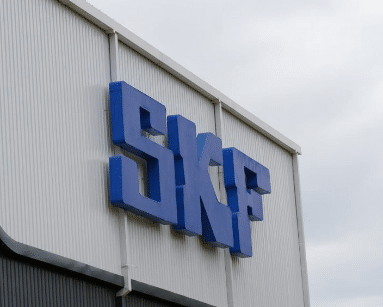
Introduction:
The oil and gas industry operates in some of the most challenging environments on Earth, from deep-sea drilling platforms to desert oil fields. This industry demands machinery and equipment that can withstand extreme conditions, high loads, and continuous operation. Bearings play a critical role in the performance and reliability of oil and gas equipment. NSK and SKF, two leading bearing manufacturers, have made substantial contributions to this sector. In this comprehensive comparison, we will explore NSK bearings and SKF bearings for oil and gas applications, highlighting their unique features, performance, and significance in this demanding field.
Challenges in Oil and Gas Applications:
The oil and gas industry presents unique challenges, including:
Harsh Environments: Equipment operates in extreme conditions, including high temperatures, high pressures, and corrosive environments.
High Load Capacity: Machinery must handle heavy loads and dynamic forces, especially in drilling and pumping operations.
Long Operational Hours: Oil and gas equipment operates continuously and often in remote locations, necessitating durable components.
Precision and Reliability: Precise movement and reliability are crucial to prevent costly downtime and ensure safety.
NSK Bearings for Oil and Gas Applications:
NSK is known for delivering high-performance bearings suitable for oil and gas applications. Key features and advantages include:
Corrosion Resistance: NSK bearings are engineered to resist corrosion, making them ideal for use in offshore drilling and other corrosive environments.
High Load Capacity: NSK bearings are designed to handle heavy loads and dynamic forces, ensuring equipment stability and reliability.
Longevity: NSK bearings are built for durability and long service life, reducing maintenance and downtime in the oil and gas sector.
Precision Engineering: NSK’s precision engineering processes result in bearings with tight tolerances, ensuring reliable and accurate performance in oil and gas equipment.
Customization: NSK offers customization options to tailor bearings for specific oil and gas applications, ensuring optimal performance.
SKF Bearings for Oil and Gas Applications:
SKF is also a significant player in the oil and gas industry, offering bearings designed for optimal performance in this sector. Key features and advantages include:
Corrosion Resistance: SKF bearings are engineered to resist corrosion, making them suitable for offshore drilling and other corrosive environments.
High Load Capacity: SKF bearings are designed to handle heavy loads and dynamic forces, ensuring equipment stability and reliability.
Longevity: SKF bearings are designed for durability and long service life, reducing maintenance and downtime in the oil and gas sector.
Precision Engineering: SKF’s precision engineering processes result in bearings with tight tolerances, ensuring reliable and accurate performance in oil and gas equipment.
Customization: SKF provides customization options to ensure that bearings meet the specific requirements of different oil and gas applications, delivering optimal performance.
Conclusion:
In the oil and gas industry, where resistance to corrosion, high load capacity, longevity, precision, and reliability are paramount, both NSK and SKF have established themselves as trusted providers of high-performance bearings.
The choice between NSK and SKF bearings for oil and gas applications should consider specific requirements such as corrosion resistance, load capacity, longevity, precision, and customization needs. By carefully evaluating these factors, professionals in the oil and gas sector can make informed decisions that enhance the efficiency, reliability, and cost-effectiveness of their equipment, ensuring the success of this crucial industry.
